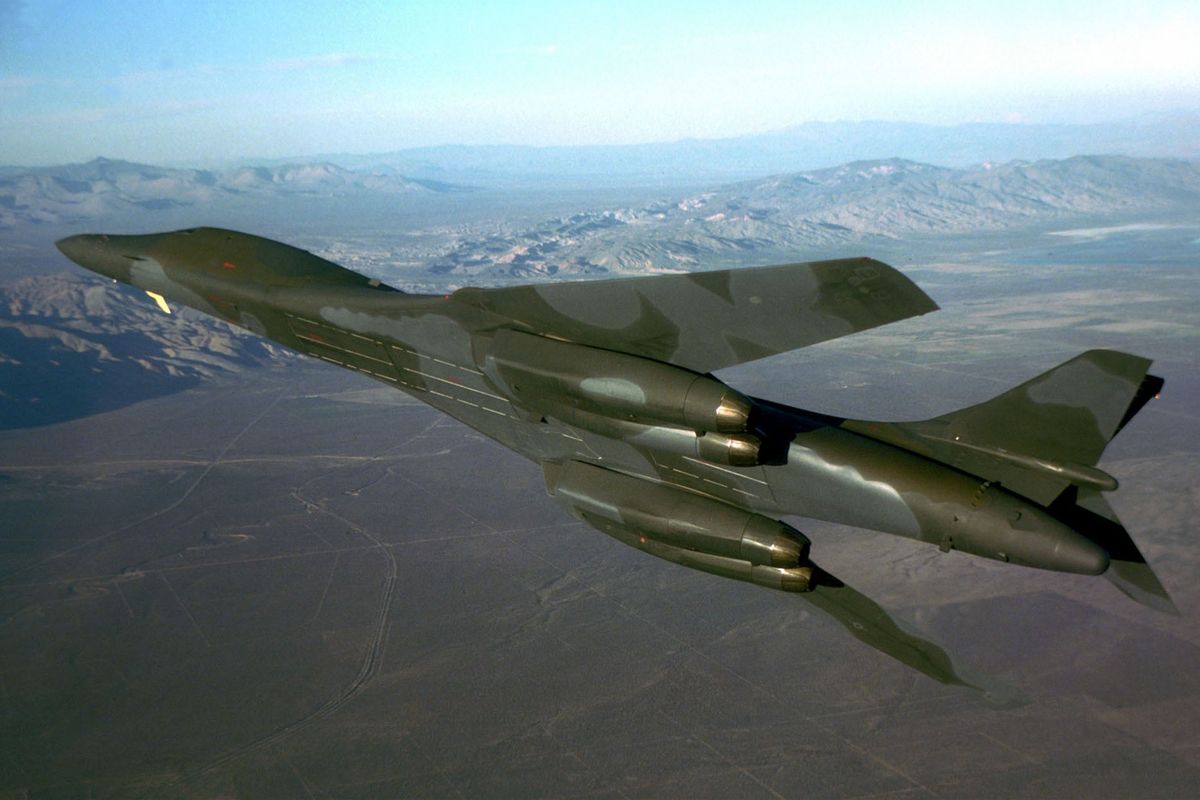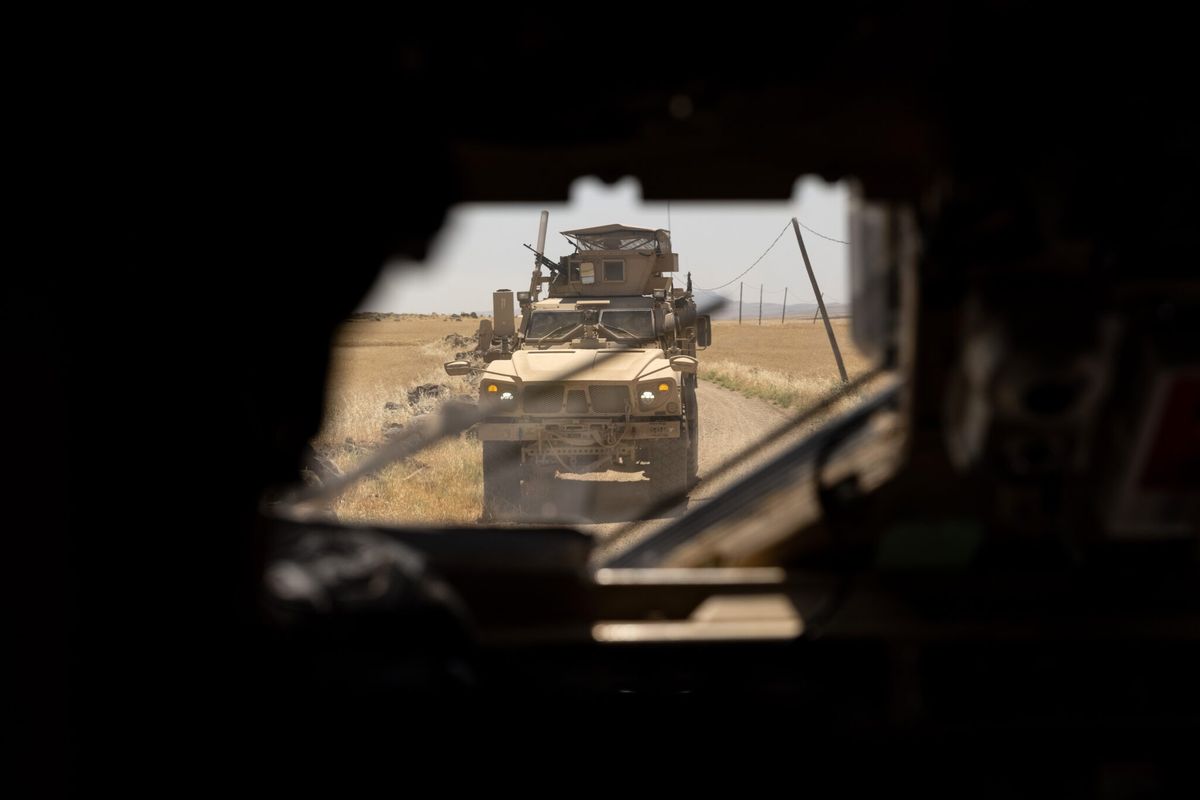ISIS is rapidly losing territory across Syria and Iraq and, as a result, is suffering significant financial setbacks. Yet ISIS remains driven by its goal of establishing a physical caliphate. To acquire the necessary funds to maintain its bloody campaign, ISIS may turn to more traditional methods of terrorist financing, such as external donations, to fill its coffers. The Cipher Brief’s Bennett Seftel spoke with Leslie Ireland, Cipher Brief expert and former assistant secretary of the treasury for intelligence and analysis, to discuss the challenging task of detecting ISIS’ intricate financial system and as well as the continuous threat posed by the group.
The Cipher Brief: With ISIS losing significant territory in Syria and Iraq, where will the group look to procure finances?
Leslie Ireland: I would assume they still have some residual funding from the activities they were able to conduct while they controlled territory. A significant part of their fundraising came from oil revenues, extorting the local populations and exporting antiquities within the territory that they controlled.
We need to be considering that they are looking at alternative sources.
ISIS presented a different challenge for us in the Treasury Department since the group did not really use the traditional route of external fundraising. In fact, I believe that a very small fraction of its funding came from external donors. But with the loss of territory and the loss of the ability to use that territory to generate funds, I would expect ISIS to take a page from other groups, such as al Qaeda and Hezbollah, and turn to external fundraising to acquire some of the funds that they need.
TCB: As ISIS loses territory and access to oil wells, have we seen the group morph into other criminal and illicit networks, such as the drug trade, human smuggling, kidnap for ransom?
Ireland: It is possible. One point to make is that ISIS has been more sophisticated than other terrorist organizations in their use of the internet and the dark web. When you think about all the illicit activities that go on in the dark web, it wouldn’t surprise me if some of that activity that you are talking about turns up there with ISIS.
TCB: Can we expect that terrorist groups will try to transfer funds via the internet websites such as eBay?
Ireland: They are very savvy electronically, so that is certainly an area that requires watching. It’s not just eBay. Just think about how many financial institutions are moving to digital ways to transfer money. I’m sure the Treasury Department is on top of this.
TCB: Has ISIS used the money lending system known as hawala networks to transfer funds? How difficult are those to trace?
Ireland: When tracking hawala networks, you need to look at it two ways. One is if you’re looking at it from the traditional financial sector point of view. At some point, that money will most likely enter the traditional financial sector, and it is critical to find it when it gets in there. That would be particularly applicable if you are looking at a bank and anti-money laundering operations that it would use to detect that.
The other way you detect it is through traditional intelligence methods. You are looking for human intelligence sources (HUMINT) who can identify who the hawala brokers, known as hawaladers, are. You are looking for their activity in signals intelligence (SIGINT) traffic or certainly other areas of intelligence. From that perspective, it’s a matter of being able to identify where the networks are and then to follow them. Once you can follow them through intelligence, that’s when it can start to lead you back to potential connections to the formal financial sector, and once it gets in there, it’s a little bit easier for the U.S. government to address it.
With respect to ISIS’ use of hawala networks, I cannot speak to current operations, but they may very well be tracking that right now.
TCB: How effective has the U.S. been at stopping ISIS financial streams?
Ireland: The record has been mixed, but it has been mixed in part because the traditional financial levers that the U.S. has used, predominantly sanctions, were not available with ISIS.
Where the U.S. government was effective, for example, was working with the Iraqi government to focus on how money was moving within Iraq, to help with extortion issues, to pay Iraqi government employees in areas that were controlled by ISIS, and to reduce the amount of money that ISIS could naturally gain a hold of. Certainly, some of the military campaigns that focused on ISIS’ oil smuggling were very important in reducing ISIS’ ability to gain revenue from that.
Overall, the record was mixed, but it was mixed because ISIS was doing this in a very untraditional way.
TCB: Has the U.S. cooperated with other countries on cutting off ISIS financing?
Ireland: Absolutely. That’s a really important part of what both the Treasury Department and the broader U.S. government do. They understand completely that many of those levers are internal to countries, and that the U.S can’t exercise them alone. So, there is a considerable amount of dialogue with other countries to make that happen.
TCB: Certain al Qaeda affiliates, such as al Qaeda in North Africa, have been more notorious for kidnapping Westerners and holding them hostage in exchange for ransom. Have we seen ISIS adopt this tactic?
Ireland: Press reports indicated that ISIS was using kidnap for ransom in Syria as recently as August 2016. And when you look at it, it’s a very quick way to raise a lot of money, more than other sources of fund raising.
This was another area where the U.S. government tried to work with foreign governments, saying, “Please don’t pay kidnap ransom money. It only encourages the kidnappers to continue to snatch citizens of your countries, and it also undermines our efforts to try and stop the flow of money into these groups.”
TCB: So bottom line, as ISIS continues to lose territory, we will see them turn toward more traditional fundraising tactics used by other terrorist groups such as al Qaeda?
Ireland: That is where I would look first. It is important to remember that just because ISIS has lost territory, that does not mean that it is going to step away from trying to control territory.
Al Qaeda’s motive was to bring about the recreation of the caliphate, but it argued for caution and the need for a proper foundation first. ISIS was taking the territory it was capturing to create a caliphate much more quickly. Taking territory is not only important to ISIS because it is a way to raise money, but it’s a way to establish their credibility. So don’t expect ISIS to be down and out – expect them to continue to try and come back.
With that in mind, ISIS is going to need to raise money somehow. That’s not to say that the group will no longer try to extort money in the territory that they may be able to hold, but the most likely avenue at this point is going to be external fundraising. I could see that taking at least two forms. For example, collecting funds from individual external donors or levying a tax of sorts on ISIS affiliates in other countries.
Lastly, I want to reiterate that ISIS may be down, but they are not out. They are ideologically committed to creating a caliphate and will come back, perhaps as an insurgency. And that bears continued close watching.













